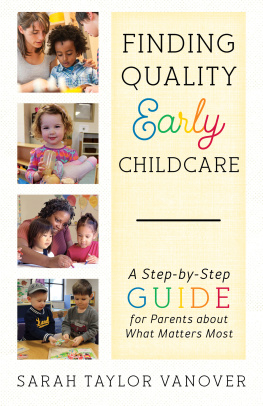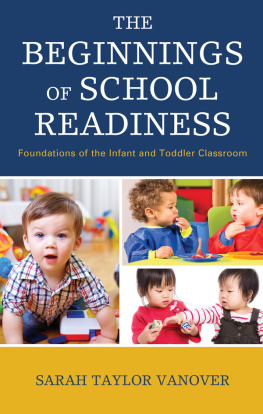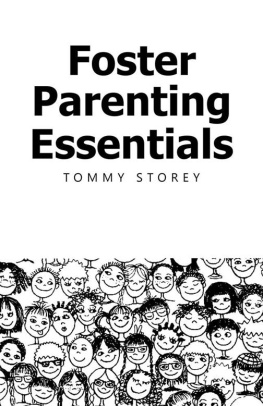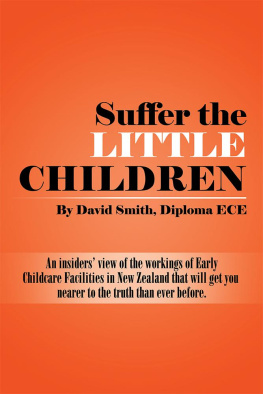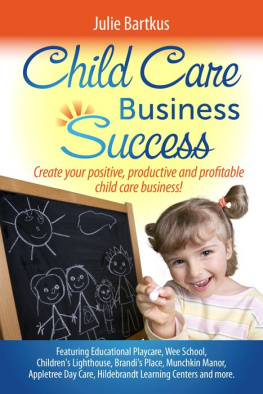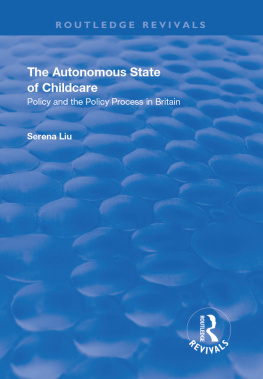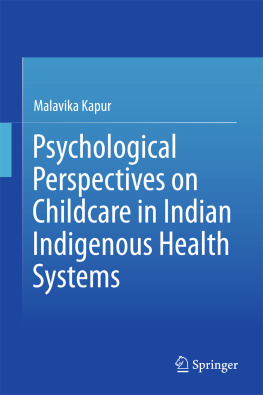Preface
Where do I go to find childcare for my baby? Where are the best preschools, and how do I get my child a spot in one of them? As soon as families begin thinking about childcare and preschool, I start to receive phone calls and e-mails. Friends or acquaintances to whom I have not spoken for years will track me down to start asking questions about which program is best for their baby.
Finding childcare can be tricky, because unless you know an expert in the field, you may not know where to start the search process. Some families will go strictly on the opinion of a friend; however, that friend may not be looking for the same standards in childcare. Some families will select a program close to their home or neighborhood for convenience, but does that program have an accreditation or another accountability system in place? Some families may wait until a couple of weeks before they need to start childcare, but for many programs, there may be an extensive waiting list already established.
All of these factors make it challenging for families to select high-quality childcare. Families want the safest, healthiest, and most educational program with the best teachers; however, many parents report that they do not know how to determine which early childhood education programs meet those standards. This text will look at all of the aspects of quality childcare to educate parents on their importance and help each family with the childcare selection process.
Why Is It Important to Find Quality Childcare?
Finding high-quality childcare for your young child is essential. The alternative can involve several different possibilities:
A lack of childcare:
When families wait too long to find a quality childcare environment, they often end up without any type of care. This can mean that one parent or family member may need to give up essential income from a job in order to stay home with the child. Some employers may be generous to offer a temporary leave, but eventually, every business must fill the position.
A poor-quality childcare environment:
When you are unable to find a spot for your child in the childcare program of your choice, you begin to look at less suitable options. Of course, childcare programs are not merely lumped into two categories: poor quality and high quality. Every program has strengths and weaknesses, but there are many programs that have more flaws than assets.
In order to feel comfortable leaving your child in someone elses care, it is essential to know that the child is safe, healthy, and left with adults who care for your child. When a family knows that a child is not in an environment with these minimum standards of care, then the family members either spend a great deal of time worrying about the child when they are apart, or the family pulls the child out of childcare and must start the entire process over again.
What Are the Benefits of Selecting
High-Quality Childcare?
Simply looking from the perspective of the adult, there are many personal benefits to selecting quality childcare!
Knowing that your child is being cared for properly gives all families peace of mind. If your child is happy and safe, you can carry on with your normal daily activities without worrying about each moment of the childs day.
If your child is in a high-quality childcare program, then you are more likely to attend work regularly. Programs that have high rates of illness and injury can keep a family going back and forth to the doctors office. Also, if the family is worried about the child getting hurt each day, then they may keep the child home as a preventative measure. Frequent absences for the child mean frequent absences for the grown-ups.
If your job is flexible and your employer does not mind these absences, then you are lucky to have such a family-friendly position. (Please keep in mind that even in quality childcare programs, your child might get sick. When young children are learning to blow their noses, wash their hands, and use the toilet, the spread of germs is higher than any other age group; however, a quality program puts measures into place to eliminate as much illness as possible.)
A quality childcare program not only provides care, but it also provides education for your child. If you want a babysitter to care for your childs basic needs (eating, diapering, sleeping, etc.), that is very different from an early childhood education program.
A quality program will start the education process in the infant room by talking to your baby and letting the child have a variety of sensory experiences. In preschool, the children should be working on social skills, like playing together in a group and sharing, but the children should also be learning academic skills like counting, letter recognition, and basic handwriting development.
A quality childcare program understands that a huge portion of school readiness includes the social and emotional development of the child. In order to succeed in Kindergarten, preschool teachers need to stress the importance of following a daily schedule, following two- and three-step instructions, playing in small groups and large groups, and sharing with peers. These skills are just as essential as academic skills, and should be represented equally in the curriculum.
A high-quality childcare program will involve families in the education process. There should be many different ways that families are included in their childrens education, for example, classroom newsletters, parent-teacher conferences, parent volunteers, and family activities like music performances or family dinners. The childcare program needs to make it evident that families are invited to participate at any time and that their involvement in their childrens education is important to the education process.
A quality early childhood program will also provide opportunities for parent education. Since the early childhood education specialists are experts on child development and childrens behavior during this stage of life, it is important for the teachers and the program director to provide learning opportunities for the parents. This could be through a weekly blog that parents have the opportunity to read online, or the program might provide an education meeting once a semester to focus on a specific topic.
High-quality early childhood programs have specific rules that both staff and enrolled families are expected to follow. These can be rules about discipline strategies, professional behavior on the campus, or about business principles like when to pay tuition. Programs that have these policies in place and have the policies readily available to staff and families are much more successful at handling difficult situations and giving fair and just treatment to each individual family.
High-quality childcare programs have a high level of accountability. Although having the individualized care of a nanny or au pair in your home may seem tempting due to the flexible schedule and individualized care, this type of care has little accountability in place for the caregiver. In childcare programs, the providers are rarely left alone with children. Multiple caregivers take care of the children and see the children at all times.
This means that instances of child abuse are extremely low in childcare program settings, and you get the benefit of your child learning to relate to more than one persons caregiving style. If a caregiver were to become frustrated with a child, then he or she can always ask for help from another provider in order to step away and calm down. Additionally, in a childcare program, the director is also supervising the childcare providers, which provides another level of accountability.

